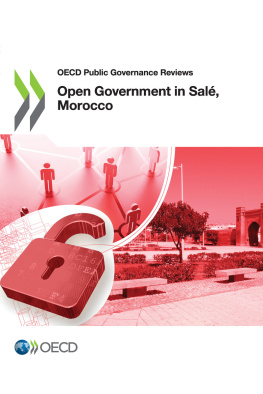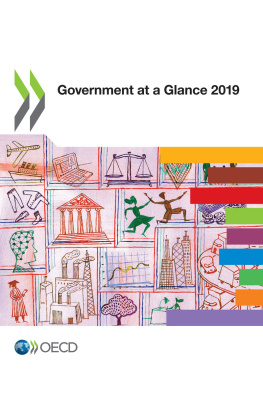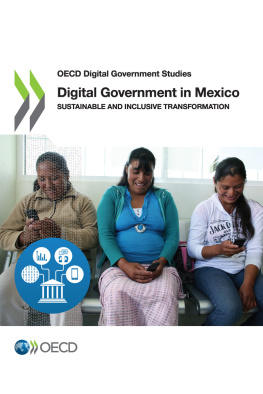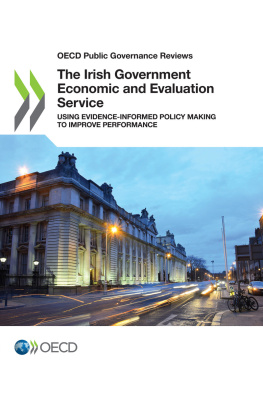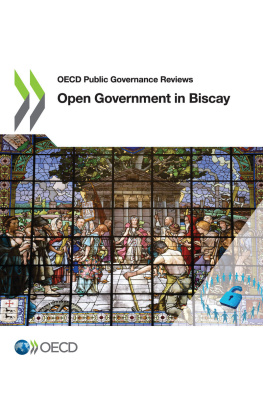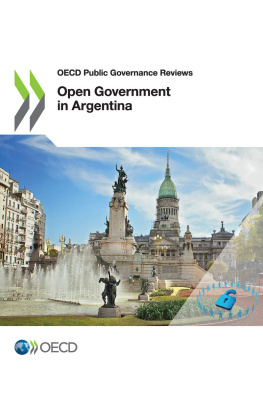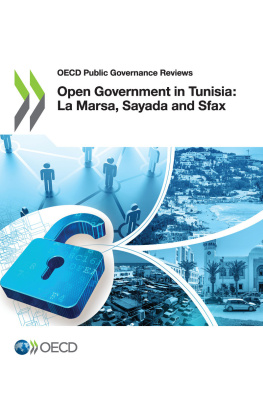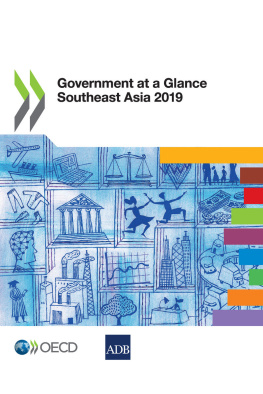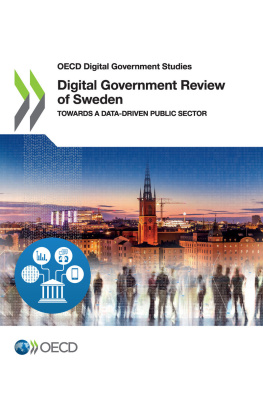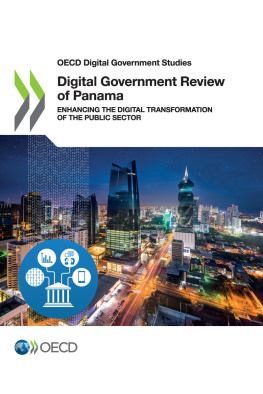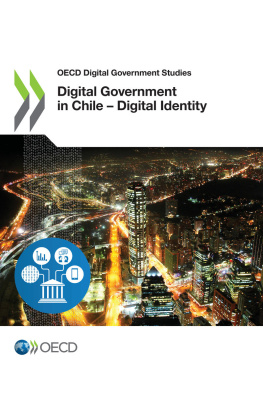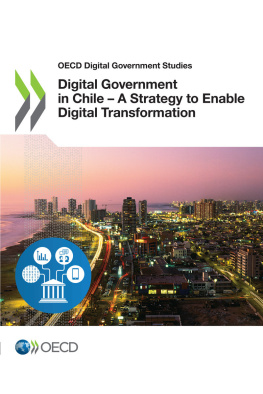OECD - Open Government in Salé, Morocco
Here you can read online OECD - Open Government in Salé, Morocco full text of the book (entire story) in english for free. Download pdf and epub, get meaning, cover and reviews about this ebook. year: 2019, publisher: OECD Publishing, genre: Politics. Description of the work, (preface) as well as reviews are available. Best literature library LitArk.com created for fans of good reading and offers a wide selection of genres:
Romance novel
Science fiction
Adventure
Detective
Science
History
Home and family
Prose
Art
Politics
Computer
Non-fiction
Religion
Business
Children
Humor
Choose a favorite category and find really read worthwhile books. Enjoy immersion in the world of imagination, feel the emotions of the characters or learn something new for yourself, make an fascinating discovery.
Open Government in Salé, Morocco: summary, description and annotation
We offer to read an annotation, description, summary or preface (depends on what the author of the book "Open Government in Salé, Morocco" wrote himself). If you haven't found the necessary information about the book — write in the comments, we will try to find it.
OECD: author's other books
Who wrote Open Government in Salé, Morocco? Find out the surname, the name of the author of the book and a list of all author's works by series.
Open Government in Salé, Morocco — read online for free the complete book (whole text) full work
Below is the text of the book, divided by pages. System saving the place of the last page read, allows you to conveniently read the book "Open Government in Salé, Morocco" online for free, without having to search again every time where you left off. Put a bookmark, and you can go to the page where you finished reading at any time.
Font size:
Interval:
Bookmark:
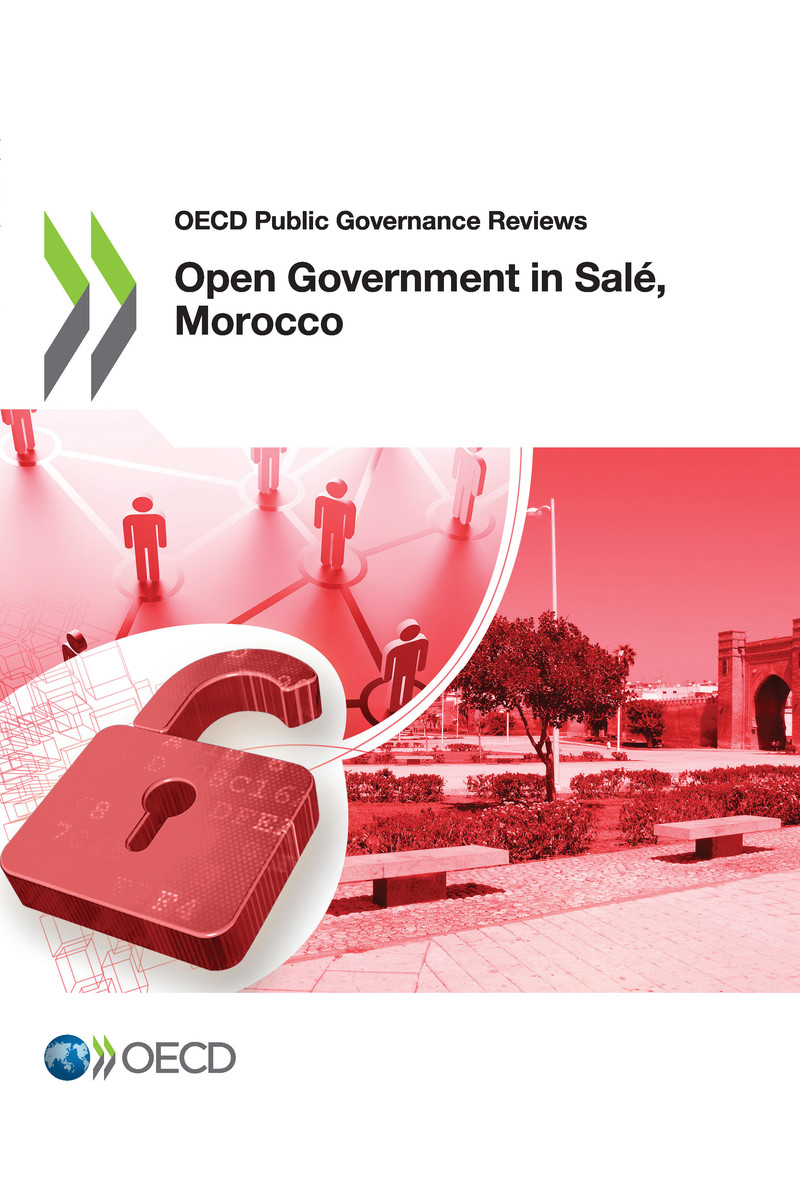
OECD (2019), Open Government in Sal, Morocco , OECD Public Governance Reviews, OECD Publishing, Paris, https://doi.org/10.1787/b9e9c6e6-en .
The principles of open government and participatory democracy are enshrined in Moroccos 2011 Constitution, as well as in the 2015 laws regarding regionalisation. Implementing open government principles at the local level, where citizens first interact with the public administration, can help strengthen trust and ensure that policies and services better respond to societys needs. In this context, the municipality of Sal is a pioneer, as it proactively engages its citizens in the affairs of the municipality and works towards the implementation of the principles enshrined in the 2015 laws.
Since 2012, the OECD has been working with countries to develop a governance structure for open government and international standards. Within the framework of the MENA-OECD Governance Programme, the government of Morocco, led by the Ministry of Reform of the Public Administration and Civil Service, and the OECD are working together to embed these principles in the public administration at national and local level. The municipality of Sal was chosen as a pilot city to implement open government principles at the local level.
This report, prepared at the request of the municipality, analyses the legal, institutional and policy frameworks of open government policies and practices in Sal, using as a baseline the 2017 OECD Recommendation of the Council on Open Government and good practices in OECD countries.
The municipality of Sal has created a culture of dialogue between public officials and the population, and a relationship with citizens and civil society based on trust. Building on this foundation, Sal should consider taking a more structured approach to open government by creating a dedicated office for open government and institutionalising its participatory mechanisms, including focusing on more marginalised groups. To do so, it could take advantage of the participatory practices foreseen in the framework of the ongoing regionalisation process.
This report encourages Morocco to further strengthen and implement open government initiatives at the local level and to share the existing good practices, such as those in Sal, with other municipalities. The culture of dialogue, which Sal builds its practices on, can be an inspiration for other local authorities.
The OECD Secretariat wishes to express its gratitude to all those who made this report possible. First and foremost, thanks are due to the municipality of Sal, and especially to its President Monsieur Jamaa El Moatassim, and the Government of Morocco, in particular the Ministry of Modernisation of the Administration and Civil Service, for their constant support during the various workshops and the peer review process for this project. The OECD would also like to extend its gratitude to all the other stakeholders from civil society and the private sector who took part in the peer review.
In addition, the OECD would like to thank the public official who served as peer reviewer: Lino Ramos Ferreiro (Alcobendas, Spain).
As part of the MENA-OECD Governance Programme, this report has been prepared by the Directorate for Public Governance at the OECD, headed by Marcos Bonturi. It falls within the framework of the Open Government project, managed by the Governance Reviews and Partnerships Division, under the responsibility of Martin Forst. The report was produced under the strategic direction of Alessandro Bellantoni, head of the Open Government Unit. The peer review and drafting process was led by junior public policy analyst Katharina Zuegel. The report was written by Katharina Zuegel, with the support of Emma Cantera and Charlotte Denise-Adam, who also participated in the peer review process. Caroline Rolland-Diamond and Joelle Palmieri provided editorial support. Roxana Glavanov provided editorial support and prepared the manuscript for publication. Clare Pedrick translated the report into English. Administrative support was provided by Michelle Ortiz. Information and data concerning the municipality of Sal were provided by the team of the information and communication systems division of the municipality which also participated in the revision of this report.
The report was developed in line with the mandate to promote open government reforms in the MENA region, received by the OECD within the context of the G7 Deauville Partnership with Arab Countries in Transition. The OECD wishes to thank the Middle East Partnership Initiative (MEPI) of the United States for its financial support.
Morocco has pledged to implement the principles of open government, a commitment strengthened by the Constitution of 2011. In addition, Morocco has recognised the importance of subnational governments in forging a closer relationship between government and citizens. These subnational authorities are at the forefront of a number of open government practices. The process of advanced regionalisation ( regionalisation avance ), which is strengthening the powers of the municipalities and regions, is leading to local public policies that are more open, transparent and effective. In this context, the mayor and the municipal council of Sal have undertaken and supported a number of initiatives to promote transparency, stakeholder participation and accountability, with the objective of bringing the municipality closer to its citizens and involving them in the development of the city. The initiatives are based on a bottom-up approach developed at district level and on strong engagement by local civil society. These efforts could be reinforced by fully implementing all provisions of the regionalisation process and the 2011 Constitution.
Font size:
Interval:
Bookmark:
Similar books «Open Government in Salé, Morocco»
Look at similar books to Open Government in Salé, Morocco. We have selected literature similar in name and meaning in the hope of providing readers with more options to find new, interesting, not yet read works.
Discussion, reviews of the book Open Government in Salé, Morocco and just readers' own opinions. Leave your comments, write what you think about the work, its meaning or the main characters. Specify what exactly you liked and what you didn't like, and why you think so.

